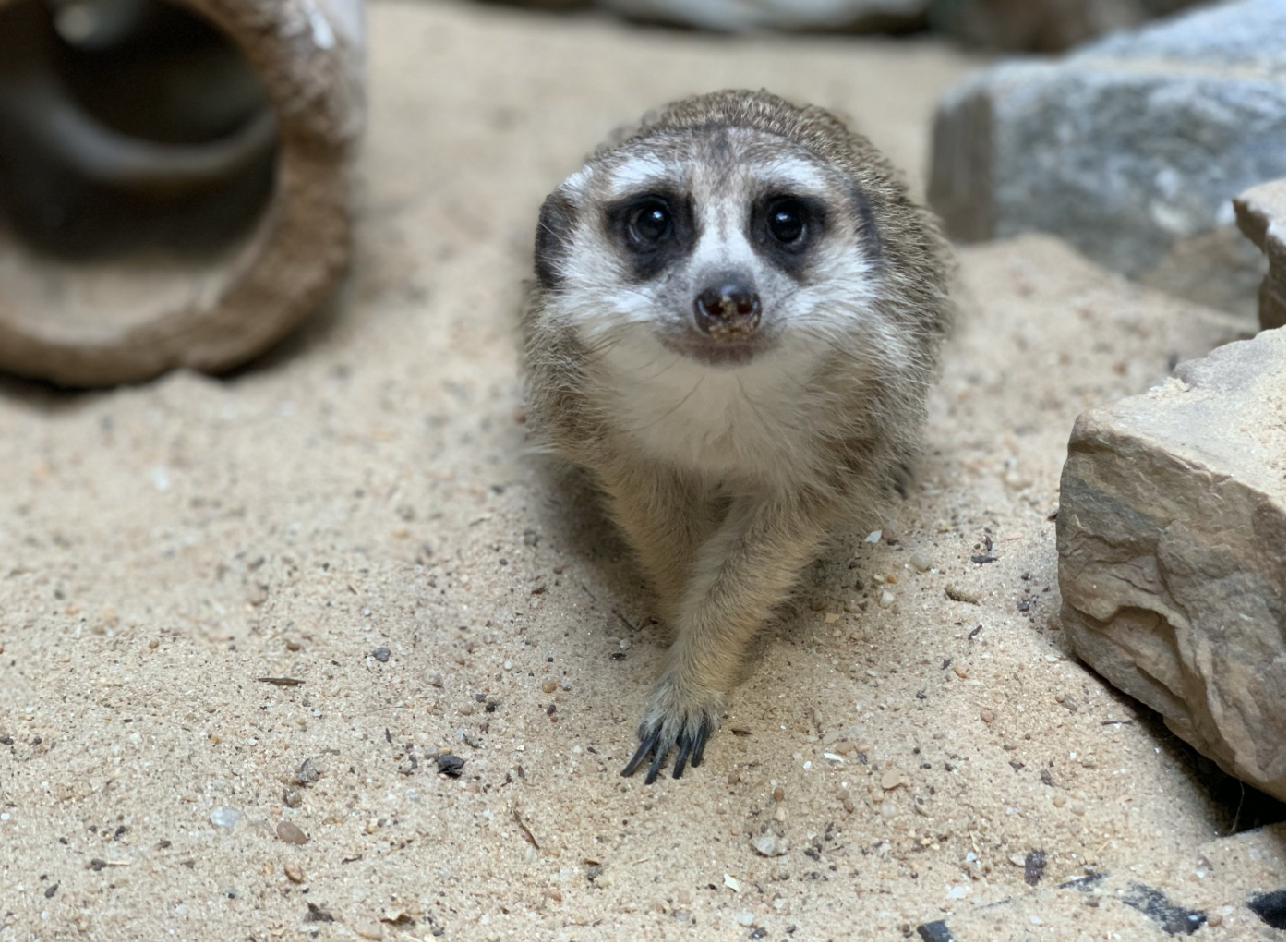Dogo, the National Zoo’s last meerkat, was euthanized Monday at 14 years old. Exceeding his estimated lifespan by four years, Dogo’s final days were marked by an enlarged heart, arthritis, and a progressing spinal disease that was causing him to urinate and defecate in strange places.
Dogo’s humane passing to the great savannah in the sky marks the end of an era of meerkats—furry, long-clawed members of the mongoose family—at the zoo. His parents arrived in 2006, welcoming baby Dogo one year later and his sister, Baya, who was euthanized in May 2020. Zookeepers elected to neuter or contraceptive the meerkat pod to limit hormone-induced aggression, and refrained from introducing new meerkats as the existing pod dwindled. There was a concern that the aging National Zoo meerkats would be bullied by the younger generation. But meerkats are known for their social natures, and a press release notes that Dogo would sit next to several meerkat stuffed animals.
Still, the zoo won’t remain meerkat-less for long. Small Mammal House Curator Steve Sarro says a team is working on procuring new meerkats from other zoos, and hopes to have a pod in place by next spring. Unlike the zoo’s previous colony, this group of meerkats could be okayed for breeding. Should that be the case, Sarro says we might have baby meerkats by the end of 2022.


















